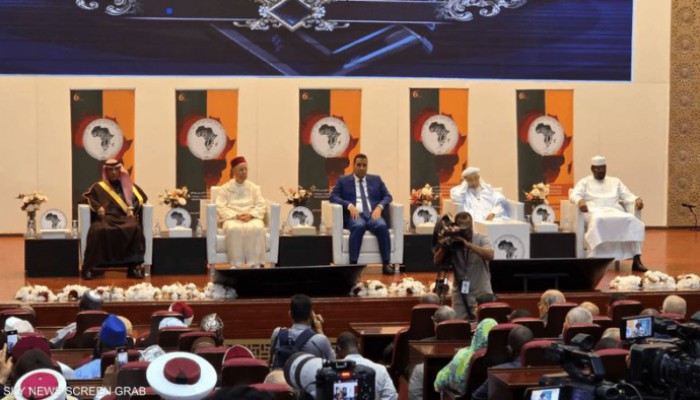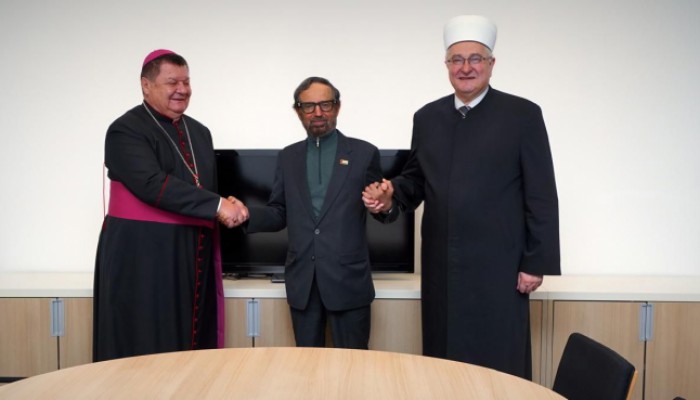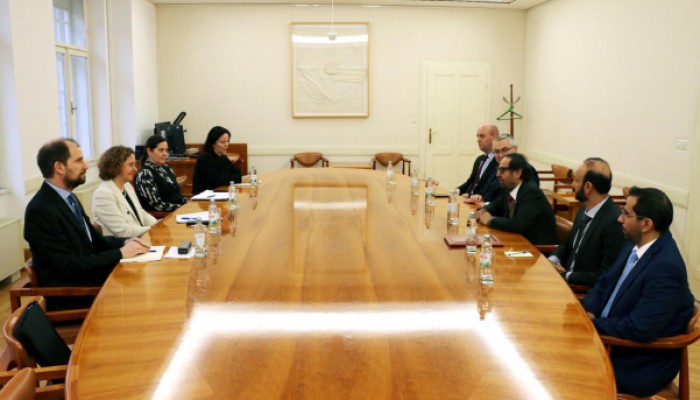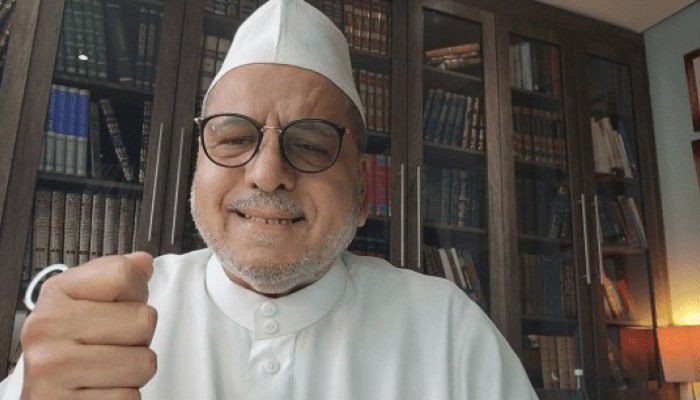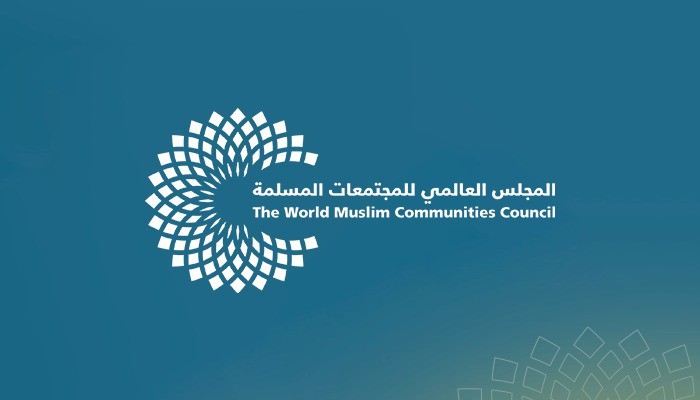
The World Muslim Communities Council Concludes "Knowledge Integration between Sharia, Humanities and Cosmology For Intellectual Giving, Scientific Advancement and Civilization Witnesses"
- 2021-Aug-01
His Excellency Dr. Ali Rashid Al Nuaimi, Chairman of The World Muslim Communities Council, said that “the conference presents an unconventional topic to fills a void in the intellectual arena in the Islamic world and the world at large,” stressing that “the conference topic opens up broader horizons for study and research to presents a discourse of compatibility between the humanities, Sharia and Cosmology.
"The basis of the human and legal sciences is one, as Allah is the creator of the human soul and the whole universe, so the goals and visions of what comes out of these scientific sources must be integrated," Al Nuaimi added.
In his opening speech, His Excellency Dr. Osama Al-Abd, Secretary-General of the League of Islamic Universities, noted that "the conference came at an appropriate time and place, given its importance in exchanging benefits between Sharia, humanities and cosmology," explaining that "the knowledges overlap and scientific integration between them is an essential feature of Islamic civilization.
His Excellency Dr. Mohamed Bechari, Secretary-General of The World Muslim Communities Council, said that "sciences, knowledge and diverse cultures are based on the wealth of the human mind, and that cognitive integration is a diligent attempt to bring concepts and sciences out of the pit and dismantle their solid bonds."
"in light of the huge data of accurate information, people have become more specialized, but specialization does not mean a negative thing, but rather a goal that many universities and institutions seek to achieve."
Dr. Fatiha Tamzarti, from the Supervising and Coordination Committee of the conference, explained that "the main idea that the conference is betting on is to address the rupture between the humanities, cosmology and Sharia, especially that the estrangement between sciences and even geography has negative repercussions on science and knowledge."
............................
Under the title "On Theoretical Foundations of Integration Between Islamic and Cosmic sciences", the discussion of the first session of under the chairmanship of Dr. Muhammad Azhari, from Sultan Moulay Slimane University in Morocco, where the speakers indicated that "there are well-established foundations in our Islamic civilization that emphasize the importance of knowledge and scientific integration between humanities and Sharia sciences, and that the scholars of the Islamic nation did not limit their interests to jurisprudence, literature and the arts, but rather focused and excelled in medicine, mathematics, astronomy and physics, and provided experiences and applications that represented strong foundations for modern scientific discoveries.
The second session was entitled “Evaluating Experiences of Cognitive Integration in Second Half of 20th Century.” The papers focused on “emphasizing twinning between worldly sciences and religion, and cognitive integration between Qur’anic sciences, cosmic sciences and humanities, as its orientations enshrine the principle of monotheism.”
The third session entitled “On Importance and Role of Knowledge Integration,” where speakers focused on several issues such as “to assert that cultural diversity is the way to achieve knowledge integration, knowledge integration is a civilizational necessity, as civilizations depends 9n Sharia and cosmic sciences".
The fourth session was titled "Types of Integration Between Islamic sciences", where speakers "talking about cognitive integration between linguistic levels and its impact on social transactions and psychological states, then the poetic realms of Omar bin Abi Rabiah, and how his poems combined between Sharia and humanities.
The fifth session, which entitled "Challenges and Conditions of knowledge Integration", stressed that "the topic of the conference is a scientific and academic demand that needs to come out with recommendations on the cognitive integration between the Sharia and cosmic sciences, as bridging between the various sciences is a pillar in the process of civilisation.
The sixth and final session, which entitled “Applications of knowledge Integration in Public Education and University curriculum,” in which the speakers referred to “the opportunities and challenges of technological and digital applications on the nature of integration between knowledges, and the impact of knowledge integration between the humanities in confronting the phenomenon of extremism on the one hand, and the role of this integration in building a solid and coherent scientific discourse on the other hand.
The virtual international conference "Knowledge Integration between Sharia, Humanities and Cosmology For Intellectual Giving, Scientific Advancement and Civilization Witnesses" concluded with a session of researchers, in which researchers from the Universities of Sultan Moulay Suleiman and Mohammed V in Morocco affirmed that “knowledge integration is the focus of the cognitive vision in the Holy Qur’an, and that civilized and human integration makes scientific and cognitive integration as its main pillar.
It is noteworthy that the World Muslim Communities Council is an international non-governmental organization, headquartered in the UAE capital Abu Dhabi. It is considered a think tank to rationalize organizations and societies working in Muslim societies, renew their thinking and improve their performance in order to achieve one goal; The integration of Muslim societies in their countries, in a way that their members realize the perfection of citizenship and complete affiliation with the Islamic religion. The council seeks, through holding dozens of virtual conferences, seminars and activities, to localize the concepts of religious, ethnic and cultural pluralism, in a manner that preserves human dignity and respect for his beliefs, and establishes the values of moderation, dialogue, tolerance and belonging to the homelands.




